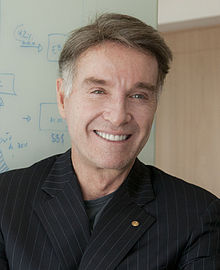 I think the dream Eike Batista had for turning resource-rich Brazil into a superpower was right from the beginning and the worse of his crumbling empire may not be over yet but believe me, things matching his goals could be possible if someone like him paces himself with careful planning, realistic projections and a more humble approach. In fact, Brazil is the largest net exporter of various commodities including sugar, ethanol, beef, chicken, frozen orange juice concentrate, soybean, eucalyptus pulp, tobacco and coffee as well as the second largest net exporter of iron ore, banana, pineapple, papaya, cotton, turkey and corn while just since recently possessing huge probable reserves of petroleum located off-shore and under a thick layer of salt and rock. Altogether, I’m talking about three oil fields that were discovered within the last handful years in the Santos Basin including the Júpiter, Tupi and Libra fields containing perhaps some 15 billion barrels of recoverable oil-equivalent according to the latest estimates. This is on top of the newly discovered and massive Carioca oil field located within the Basin itself. Accordingly, these estimates put Brazil in a strategic and privileged position by giving it potential of becoming one of the major, friendly and safe suppliers to America which consumes a third of oil production worldwide and consisting of 20 million barrels of oil a day according to the Energy Information Administration. By the same token, besides pressure for cleaner, cheaper and renewable fuels, entrepreneurs and experts like T. Boone Pickens are pushing authorities in the US Department of Energy to switch to fuels that can be produced domestically in plentiful quantities like corn-based ethanol and extraction of natural gas in the Rookies which has proven and probable vast reserves of the gas fossil. Consequently, taking into consideration that Brazil has under its umbrella capacity to mass produce and export all three fuels including oil, natural gas and both corn and sugar-based ethanol besides friendly relations with the US, the country has enormous strategic value waiting to be unleashed. In addition, domestic policy by the government seems to be the right one because since the first presidential term of Luiz Inácio Lula da Silva some 20% or about 40 million Brazilians were lifted out poverty according to The Economist. Likewise, the government is investing heavily on human capital by reinvesting in education or reallocating resources to it including improved public education and greater access to elite institutions of higher learning. For instance, out of the 25 best universities in Latin America ranked by US News & World Report today, 15 institutions are from Brazil alone including the top one which is the University of São Paulo.
I think the dream Eike Batista had for turning resource-rich Brazil into a superpower was right from the beginning and the worse of his crumbling empire may not be over yet but believe me, things matching his goals could be possible if someone like him paces himself with careful planning, realistic projections and a more humble approach. In fact, Brazil is the largest net exporter of various commodities including sugar, ethanol, beef, chicken, frozen orange juice concentrate, soybean, eucalyptus pulp, tobacco and coffee as well as the second largest net exporter of iron ore, banana, pineapple, papaya, cotton, turkey and corn while just since recently possessing huge probable reserves of petroleum located off-shore and under a thick layer of salt and rock. Altogether, I’m talking about three oil fields that were discovered within the last handful years in the Santos Basin including the Júpiter, Tupi and Libra fields containing perhaps some 15 billion barrels of recoverable oil-equivalent according to the latest estimates. This is on top of the newly discovered and massive Carioca oil field located within the Basin itself. Accordingly, these estimates put Brazil in a strategic and privileged position by giving it potential of becoming one of the major, friendly and safe suppliers to America which consumes a third of oil production worldwide and consisting of 20 million barrels of oil a day according to the Energy Information Administration. By the same token, besides pressure for cleaner, cheaper and renewable fuels, entrepreneurs and experts like T. Boone Pickens are pushing authorities in the US Department of Energy to switch to fuels that can be produced domestically in plentiful quantities like corn-based ethanol and extraction of natural gas in the Rookies which has proven and probable vast reserves of the gas fossil. Consequently, taking into consideration that Brazil has under its umbrella capacity to mass produce and export all three fuels including oil, natural gas and both corn and sugar-based ethanol besides friendly relations with the US, the country has enormous strategic value waiting to be unleashed. In addition, domestic policy by the government seems to be the right one because since the first presidential term of Luiz Inácio Lula da Silva some 20% or about 40 million Brazilians were lifted out poverty according to The Economist. Likewise, the government is investing heavily on human capital by reinvesting in education or reallocating resources to it including improved public education and greater access to elite institutions of higher learning. For instance, out of the 25 best universities in Latin America ranked by US News & World Report today, 15 institutions are from Brazil alone including the top one which is the University of São Paulo.
Moreover, including demand from China which has a real GDP growing steadily at high single digits by replicating the Japanese model that went into effect as soon as the late American General Douglas McArthur took over after winning the war in the Pacific and thus ending World War II, I think Brazil is fully hedged. China is the second largest economy in the world with a total nominal GDP expected to surpass $ 10 trillion this year or the next. Consequently, its appetite for commodities such as iron ore is going to be strong for a good time to come. As a result, the Brazilian strategy of growing talent through education will payoff in the future because believe me, human capital is the most valuable resource of them all. Take for instance the Japanese model China is replicating successfully, you import the raw materials and your skilled labor force adds value to them by transforming the same raw materials into finished goods that are mostly intended for export, the export price of finished goods is higher than what you paid for the importation of raw materials in the first place and then magic, you make your living and is not rocket science. Brazil, on the other hand, is trying to do this as well. Take for instance the aircraft maker Embraer S.A., which now has sales exceeding $ 6 billion a year and competing while gaining ground from the likes of Bombardier Aerospace Corporation, Gulfstream Aerospace Corporation, Dassault Aviation S.A., Textron Aviation Corporation and even Boeing Corporation to name a few, you will see that although the journey is a steep climb, Brazil is on the right track. In addition, the growth of domestic consumer spending Brazil is experiencing happens to be unprecedented with record numbers showing one of best industries if not the best for air passenger traffic. In similar fashion, indoor malls are proliferating all over the place including developers like BR Malls S.A., Aliansce Shopping Centers S.A., Iguatemi Empresa de Shopping Centers S.A., Multiplan Empreendimentos Imobiliários S.A, Cyrela Commercial Properties S.A., João Fortes Engenharia S.A. and Companhia Zaffari Comércio e Indústria Limitada.
To conclude, I think Brazil has what it takes to become a first world country and is on the right track to achieve such a goal. Eike did have it right after all and is not coincidence that Brazil possesses by far the biggest and most powerful investment bank in the region known as Banco BTG Pactual S.A. which backed a sizable share of the capital-intensive business ventures Eike Batista undertook. Time to come in the end will judge Mr. Batista kindly or in a favorable manner.
